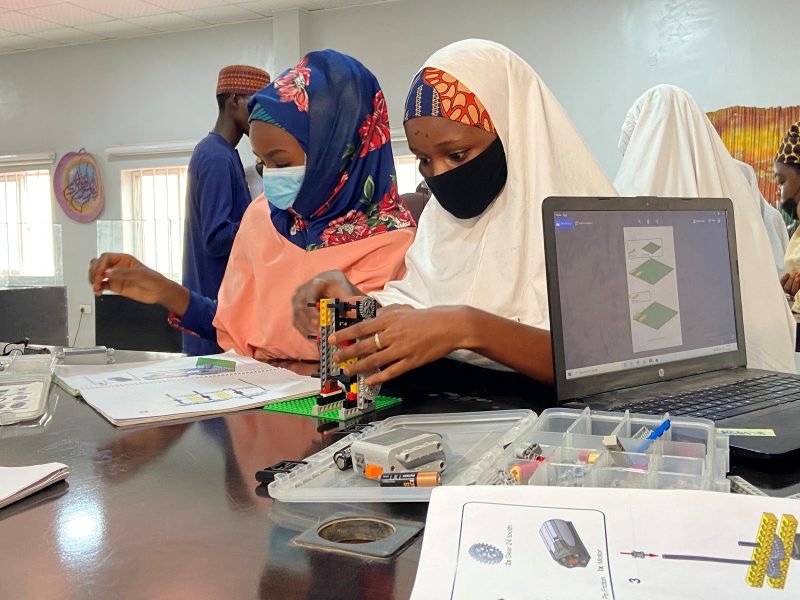Teenage girls in Kano, Nigeria’s northernmost city, are learning robotics, computers, and other STEM topics as part of an innovative programme that challenges local perceptions of what girls should do in a socially strict Muslim community.
In a country where teenage girls are expected to marry young, and their education is frequently cut short, the Kabara NGO strives to broaden their worldview via activities such as machine construction, using standard software programs and learning about math and science.
“I came to Kabara to learn robotics, and I have created a lot of things,” said Fatima Zakari, 12.
One of her inventions is a battery-powered spin art gadget for creating one-of-a-kind artwork.
“I am happy to share this with my younger ones and the community at large for the growth of the society,” she said proudly.
Kabara is the brainchild of engineer Hadiza Garbati, who wanted to raise the aspirations of northern Nigerian girls and help them develop skills they could use to start their small businesses or enrol in the university.
Since its inception in Kano in 2016, Kabara has trained over 200 girls, and Garbati is expanding her project to other northern cities. Kabara, which is in a secure zone in the centre of Kano, has been untouched by the crisis.
Garbati stated she overcame parental opposition by adhering strictly to Islamic norms. During the sessions, the females wear their hijabs.

Nasiru Wada, a close adviser to Kano’s Emir, a leader with moral authority in the society, has been critical to her success. Wada is known as Magajin Garin Kano in the traditional sense.
“The main reason we are doing this is to encourage them, to open their minds,” said Wada.
“Tradition, not to say discourages, but does not put enough emphasis on the education of the girl child, with the belief that oh, at a certain age, she will get married,” he said.
“It is good to encourage the girl child to study not only the humanities but the science subjects as well because we need healthcare workers, we need science teachers,” he said, adding that even married women needed skills to manage their affairs.

















